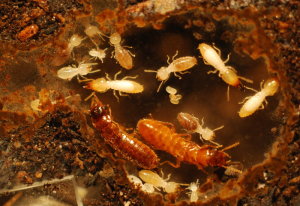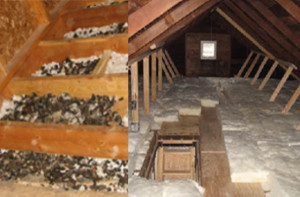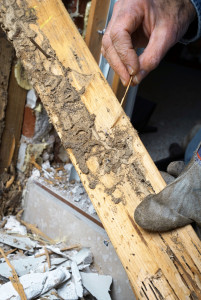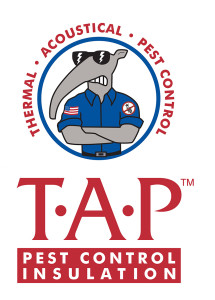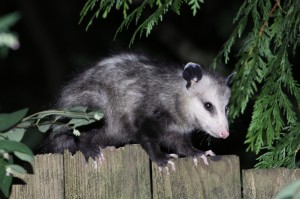The first indication a home or property may have a termite problem is when the homeowner notices a springtime swarm of termites. In our north-central California pest control region, the two types of termites responsible for most property damage are the subterranean Reticulitermes termite and the western drywood termite, Incisitermes minor. The latter is California’s second most important termite pest after the subterranean termite, is native to the state, and is the most common species of drywood termite, according to University of California’s Statewide Integrated Pest Management Program. Luckily, it’s a prime candidate for treatment using a “green” pest control solution—orange oil.
 The type of termite infesting a home or business property, and the degree of infestation, determine the most effective and cost-effective treatment. Historically termite infestations have been treated by whole-house tenting and fumigation—a major expense and disruption for homeowners, who have to move their families and pets elsewhere for the duration of treatment and sometimes replace landscaping. In our Sacramento-based pest control practice, we treat whole-house fumigation as a solution of last resort. Fortunately, an ecologically friendly orange oil treatment, XT-2000 Orange Oil, has been proven effective against drywood termite infestations, with minimal disruption to family routines or business operations.
The type of termite infesting a home or business property, and the degree of infestation, determine the most effective and cost-effective treatment. Historically termite infestations have been treated by whole-house tenting and fumigation—a major expense and disruption for homeowners, who have to move their families and pets elsewhere for the duration of treatment and sometimes replace landscaping. In our Sacramento-based pest control practice, we treat whole-house fumigation as a solution of last resort. Fortunately, an ecologically friendly orange oil treatment, XT-2000 Orange Oil, has been proven effective against drywood termite infestations, with minimal disruption to family routines or business operations.
Orange oil derives its termite killing properties from d-limonene, which is part of an essential oil found in the rinds of oranges. In addition to giving oranges their characteristic citrus aroma, d-limonene is also a solvent found in many over-the-counter stain removers and cleaners. The same properties that help d-limonene dissolve tough stains also attack the termite’s exoskeleton and internal organs to eventually kill them.
A structure may be infested with multiple termite colonies, all of the same species or of different species. An experienced pest control technician will inspect your property inside and out to locate and identify any existing termite colonies or other types of wood-destroying insects or fungi and advise you on the best course of action. Orange oil is best suited for drywood termites from the Kalotermitidae family of termites, less effective in combating subterranean termites that nest underground.
Drywood termites are killed by direct contact with the orange oil, in the presence of its fumes, and by eating the treated wood. Based on where the termite infestation has occurred, the exterminator may have to drill into wood or through walls to effectively treat the area. Because of the organic nature of orange oil, it will diminish in strength over time, potentially requiring another application. A follow up inspection may be necessary to confirm if the initial treatment was successful and reapply the orange oil if the termites have reappeared.
A side benefit to orange oil is that it is effective in controlling ants as well.
Orange oil’s high terpene content allows it to dissolve many oils, and it can cause paint to peel, which is problematic for do-it-yourself application. Our experienced pest control technicians use a drill and injection method, in which they drill a series of small holes into the infected wood timbers, then inject the holes with XT-2000 Orange Oil to reach the infected wood, killing termites on contact. Once the holes are sealed and painted over, the treatment is invisible to the naked eye, leaving behind only the faint scent of fresh oranges.
While orange oil is lethal to drywood termites, it is an environmentally safe product that poses virtually no hazard to children, pets or wildlife. One tremendous benefit of using orange oil for the eradication of drywood termites is that you don’t have to leave your home or close your business during the application. As with any pesticide application, a trained professional pest control technician will help ensure you get the best results

